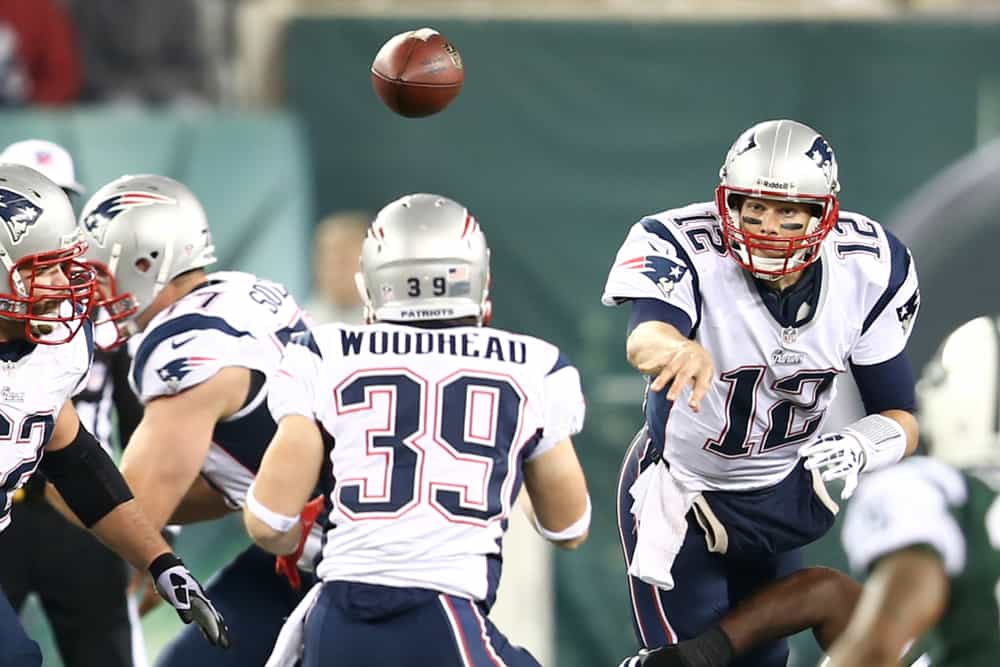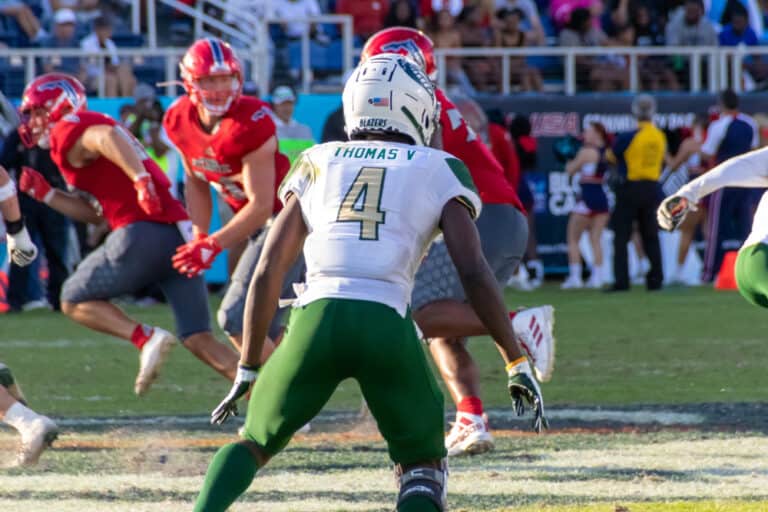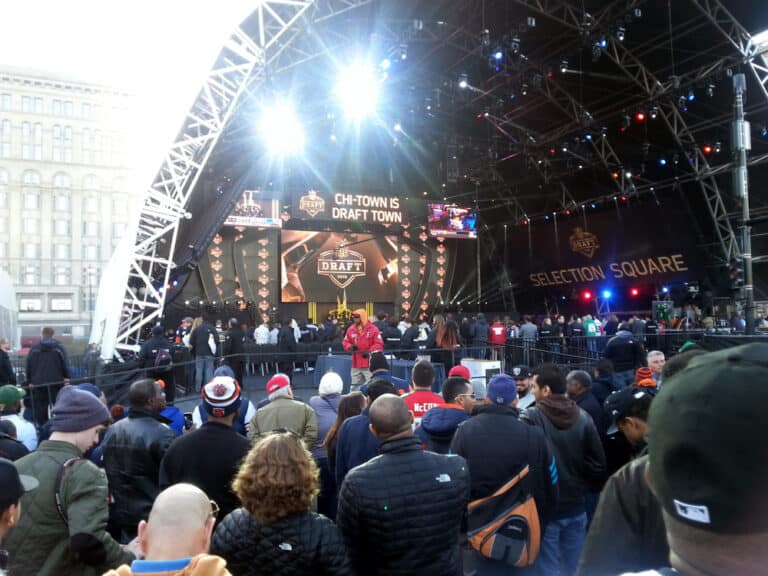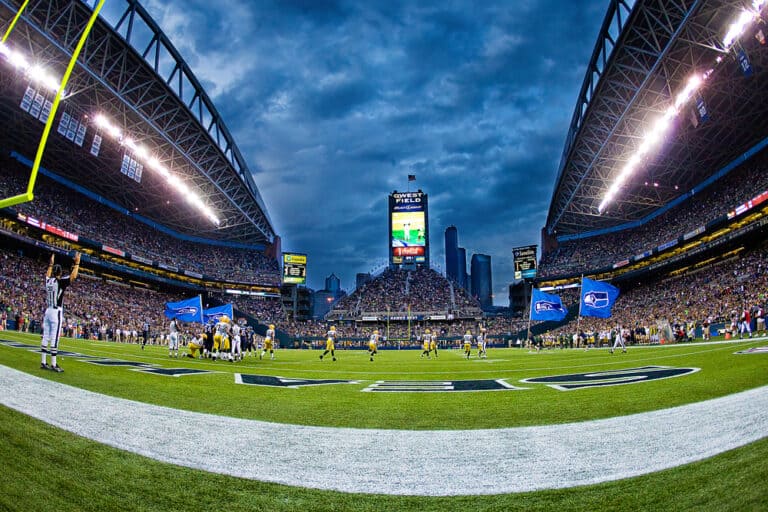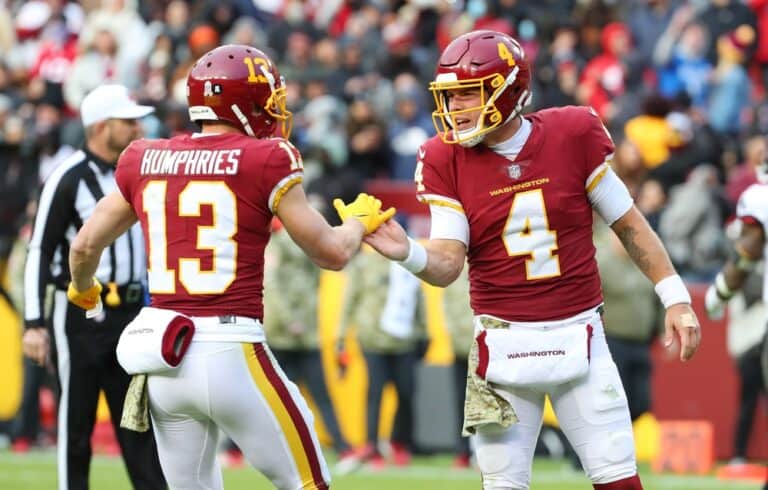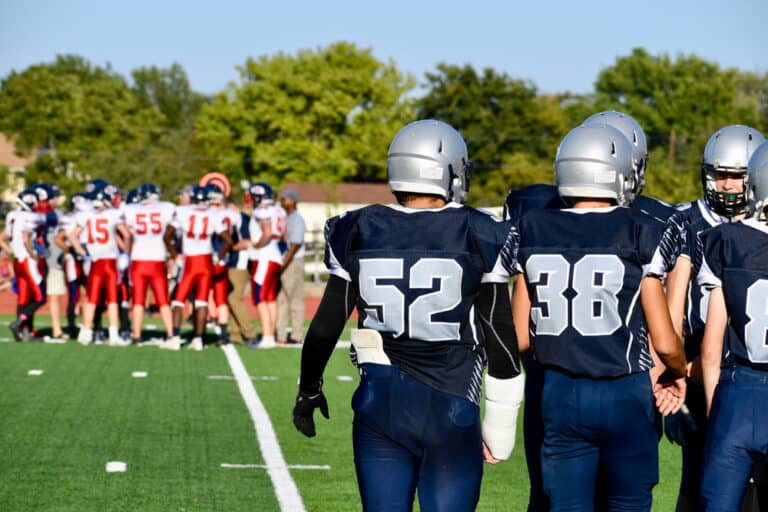Does The Quarterback Call The Plays? (All You Need To Know)
Editorial credit: Debby Wong / Shutterstock.com
American Football is by far the most popular sport in the United States. It has been around since 1869 and has grown so popular that other countries have started their own American Football Leagues. These countries include Isreal, Mexico, Sweden, Australia, Japan, and Canada. One of the questions that people as is, does the quarterback calls the play?
The quarterback or the coaches calls the plays. Quarterbacks are in constant communication with the coach. When they get the instructions from the coaches, they relay them to the rest of the offensive line. If the defense is on the field, one linebacker gets the play and communicates it to the rest.
The popularity of American football worldwide means many new people are starting to learn more about how the game is played. However, it can be challenging for people who grow up without knowing how the game works. In this post, we will address explain more about who calls the plays in a football game and if it is the quarterback.
Does The Quarterback Call The Plays?
Under normal circumstances, the plays or strategies are called by the quarterback, head coach, or assistant coach (defensive coordinator). The quarterback gets instructions from the head coach or the assistant coach. They communicate through sideline signals or wireless radios.
The quarterback then either calls a huddle and relays the play, verbally shouts out the strategy, or uses hand signals to the rest of the offensive line. If the defensive line is on the field, one linebacker will get scheme and concept instructions the same way the quarterback would.
The linebacker would get the instructions from the defensive coordinator and then relay them to the rest of the defense using shouted commands or hand signals.
Many plays in a game will depend on the characteristics of the team. For example, if the team has great defensive linemen, they will call the plays, which puts more pressure on the quarterback. On the other hand, if the team has a quarterback with a weak arm, the coach will make many short passes or rushing plays.
If the team has a quarterback with a strong arm, he will make most of the plays. The rules about who calls the plays also vary according to the types of plays.
Highschool Football
In high school football, the plays are usually called by the head coach or the assistant coach, but there are some teams where the head coach trusts the quarterback enough to decide what strategy will work best against opposing teams.
College Football
The head coach or assistant coach calls most college football plays and then uses hand signals to relate them to the quarterback. The quarterback then shouts the plays to the rest of the offensive line or calls a huddle.
National Football League (NFL) Football
In the FNL, the head coach and the offensive or defensive coordinator develop strategies or plays and relay the play to the quarterback or linebacker.
Who Calls The Different Types Of Plays?
The plays’ success depends on the coaches and the quarterback’s ability to read the behavior of the opposing team. American football has different types of plays. Not all of them are called by the same person. The plays we will look at include,
- Football Passing Plays,
- Football Running Plays,
- Football Defensive Plays,
- Football Kicking Plays.
Football Passing Plays
The offensive line carries through passing plays. When running offensive plays, it is one of the jobs of the offensive coordinator and the head coach to communicate strategy to the quarterback. The quarterback then relays the plan that the offensive coordinator and the head coach chose to the rest of the offensive line.
If the quarterback determines that the play the offensive coordinator and the head coach has called will not be effective against the opposing team’s defense, then he may change the play to one better suited.
If it is a last-minute change, the quarterback shouts the changed play loud enough for the team to hear. This change in a planned strategy is referred to as “called an audible.”
Football Running Plays
There is also football running plays to ensure the players have the best chance of winning the game. The quarterback also calls the running plays after he receives instructions from the coaches. Sometimes the coaches will give the play directly to the running back to trick the defense.
Football Defensive Plays
The defense plays are more difficult to make as they depend on the previous behavior of the opponent. They focus on their running and passing game and position on the field. They also look at their opponent’s weaknesses. They use their weakness against them in plays to win the game.
The defensive coordinator usually calls these plays. The defensive coordinator communicates instructions to one of the linebackers, and the linebacker relays the decision to the rest of the defense line.
Football Kicking Plays
When a team has a kicking situation, they will put a kicker on the field, and the kicker will do his best to kick the ball between the two goalposts. With punts, the punter needs to kick the ball as far back to the opponent’s side as possible.
Typically, the coaches call the kicking plays and put the kicker they feel will kick the ball where they need it on the field. Because the coaches are on the sidelines, they tend to see more of the opponent’s behavior than the quarterback or linebacker, which means they can make the best calls.
As stated before, the only exception is when the quarterback sees something that the coaches did not, and the play that the coaches decided on would not work. Then the quarterback can change the strategy to one that will work better on the opposing team.
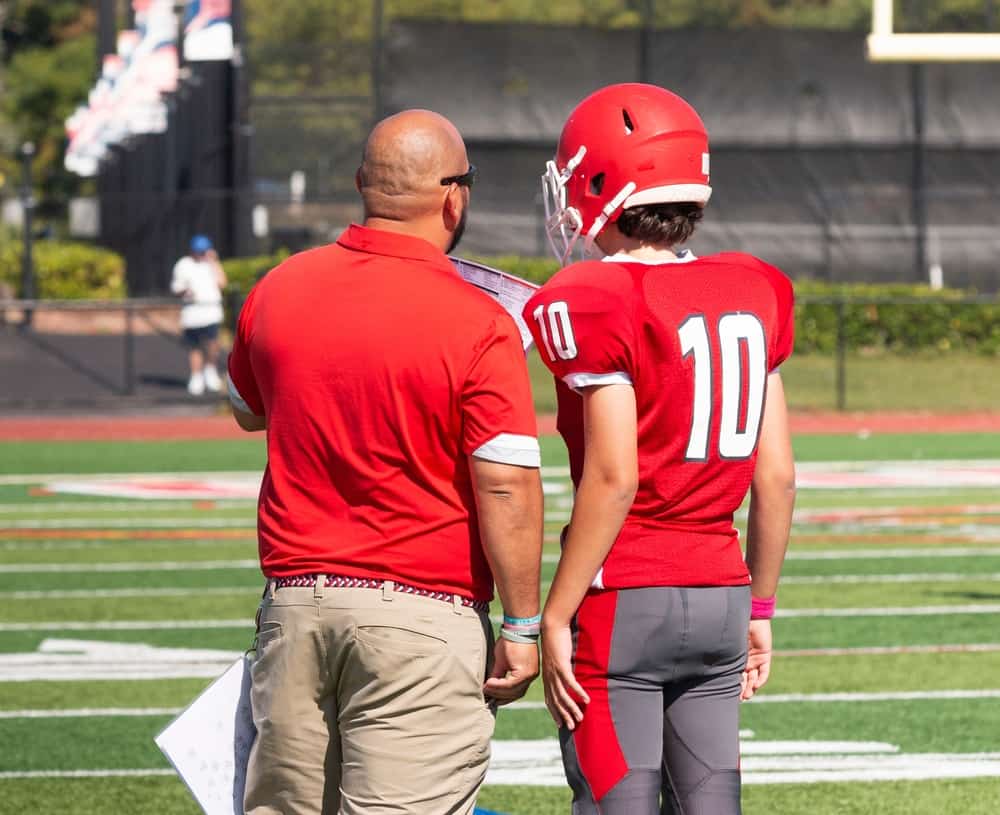
Conclusion
The quarterback, head coach, and defensive or offensive coordinator call most of the plays. There are exceptions depending on the type of play and the team’s level. The coaches will relay the instructions to the quarterback or linebacker. There are exceptions, like the play being changed last minute by the quarterback or given directly to the running back to trick the opponents.

